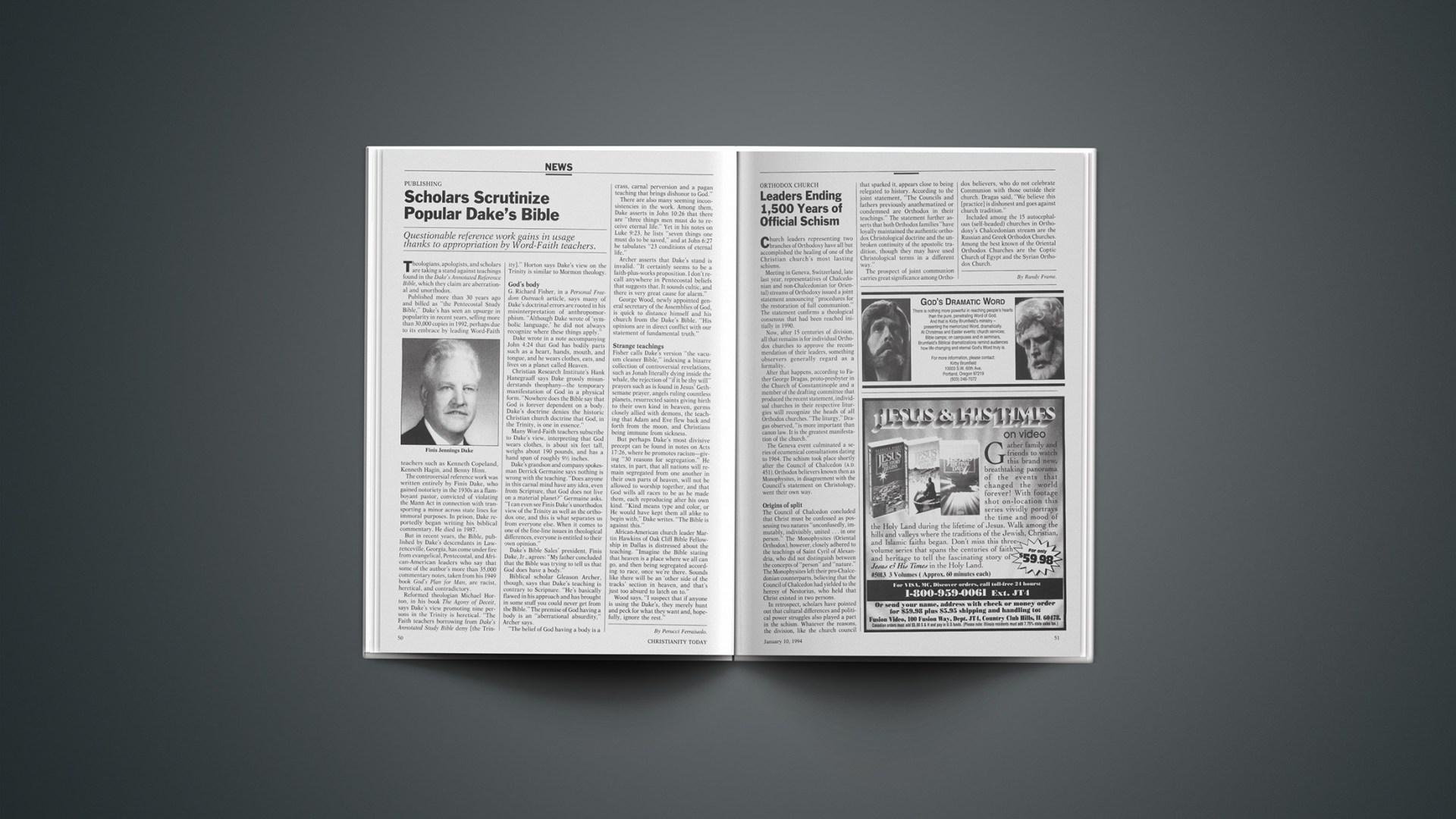Church leaders representing two branches of Orthodoxy have all but accomplished the healing of one of the Christian church’s most lasting schisms.
Meeting in Geneva, Switzerland, late last year, representatives of Chalcedonian and non-Chalcedonian (or Oriental) streams of Orthodoxy issued a joint statement announcing “procedures for the restoration of full communion.” The statement confirms a theological consensus that had been reached initially in 1990.
Now, after 15 centuries of division, all that remains is for individual Orthodox churches to approve the recommendation of their leaders, something observers generally regard as a formality.
After that happens, according to Father George Dragas, proto-presbyter in the Church of Constantinople and a member of the drafting committee that produced the recent statement, individual churches in their respective liturgies will recognize the heads of all Orthodox churches. “The liturgy,” Dragas observed, “is more important than canon law. It is the greatest manifestation of the church.”
The Geneva event culminated a series of ecumenical consultations dating to 1964. The schism took place shortly after the Council of Chalcedon (A.D. 451). Orthodox believers known then as Monophysites, in disagreement with the Council’s statement on Christology, went their own way.
Origins of split
The Council of Chalcedon concluded that Christ must be confessed as possessing two natures “unconfusedly, immutably, indivisibly, united … in one person.” The Monophysites (Oriental Orthodox), however, closely adhered to the teachings of Saint Cyril of Alexandria, who did not distinguish between the concepts of “person” and “nature.” The Monophysites left their pro-Chalcedonian counterparts, believing that the Council of Chalcedon had yielded to the heresy of Nestorius, who held that Christ existed in two persons.
In retrospect, scholars have pointed out that cultural differences and political power struggles also played a part in the schism. Whatever the reasons, the division, like the church council that sparked it, appears close to being relegated to history. According to the joint statement, “The Councils and fathers previously anathematized or condemned are Orthodox in their teachings.” The statement further asserts that both Orthodox families “have loyally maintained the authentic orthodox Christological doctrine and the unbroken continuity of the apostolic tradition, though they may have used Christological terms in a different way.”
The prospect of joint communion carries great significance among Orthodox believers, who do not celebrate Communion with those outside their church. Dragas said, “We believe this [practice] is dishonest and goes against church tradition.”
Included among the 15 autocephalous (self-headed) churches in Orthodoxy’s Chalcedonian stream are the Russian and Greek Orthodox Churches. Among the best known of the Oriental Orthodox Churches are the Coptic Church of Egypt and the Syrian Orthodox Church.
By Randy Frame.










